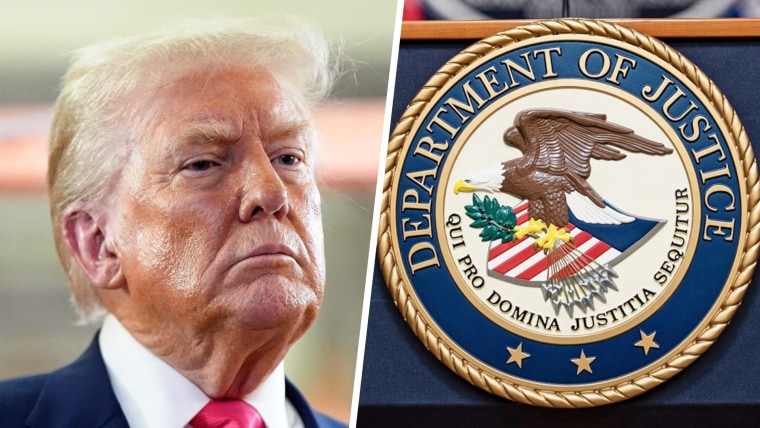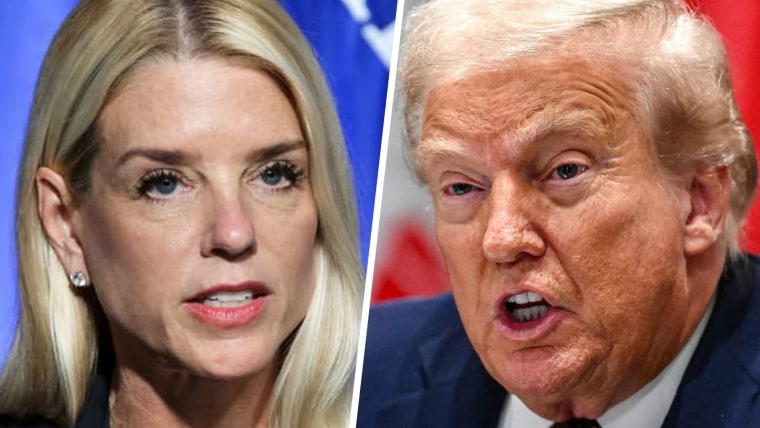Half a century ago, Richard Nixon committed perhaps the most egregious abuse of power perpetrated by a president — until Donald Trump came along. Though many Americans associate Watergate with the burglary of the Democratic National Committee headquarters and the ensuing cover-up, the most serious of the three articles of impeachment adopted against Nixon (and the one that received the most votes in the House Judiciary Committee) concerned his misuse of federal law enforcement and other executive agencies to investigate his political opponents, and his interference with the Department of Justice to protect himself. When Nixon was caught, he eventually resigned rather than face impeachment.
While Nixon abused his power in secret, though, Trump does so in the open. On Truth Social recently, Trump publicly demanded that Attorney General Pam Bondi prosecute several of his perceived political enemies. Eight months of a presidency defined by lawlessness have desensitized many Americans to his actions, but we must be very clear: ordering the attorney general to prosecute his political adversaries constitutes the gravest threat to democracy yet seen in his second term.
Trump’s campaigns against James, Comey and Schiff follow similar patterns.
In a social media post Saturday, Trump complained to Bondi that nothing was being done against former FBI Director James Comey, Sen. Adam Schiff, D-Calif., or New York Attorney General Letitia James. He insisted that they be brought to justice immediately, claiming that the three are “guilty as hell.” Of what crime, he did not say, but Trump blamed the trio for his being impeached twice and indicted “5 times!” (Trump was indicted four times, not five.) He doubled-down on his post later that evening, telling reporters that Bondi and her DOJ subordinates “have to act fast.”
The president’s comments came a day after the resignation of Erik Siebert, the acting U.S. attorney for the Eastern District of Virginia. Siebert was in charge of the investigation into James, who had overseen her office’s 2023 civil suit against Trump and his companies for financial fraud. Bill Pulte, the director of the Federal Housing Finance Agency, who has been eager to catch Trump’s eye, made a criminal referral against James to the DOJ in April. Pulte alleged that James committed mortgage fraud when she signed mortgage applications claiming two different homes as her principal residence.
James denied the allegations, and the investigation recently stalled due to a lack of evidence. But Trump officials had reportedly pressured Siebert — Trump’s handpicked prosecutor — to resign because he failed to charge James. On Friday, Trump reiterated that she was “very guilty of something.” Within hours, Siebert stepped down.

Trump’s campaigns against James, Comey and Schiff follow similar patterns. First, Trump suggests that these public servants, simply by doing their jobs, committed some unknown crime. He has falsely laid his own legal troubles at their feet, despite none of these individuals having any role in Trump’s multiple criminal indictments.
Second, all three face spurious criminal investigations. The Justice Department has opened a criminal case into Comey, and Pulte has levied the same accusation of mortgage fraud against Schiff (and Federal Reserve governor Lisa Cook, whom Trump is attempting to remove from the Fed board). Incidentally, when ProPublica reported that at least three members of Trump’s Cabinet have multiple principal-residence mortgages, the administration did not call for their resignations or refer the matters to the DOJ.
Despite these farcical developments, Trump wants the attorney general to continue the prosecutorial charade.
Third, all of the cases are flimsy at best. “They are a sham — a political hit job disguised as law enforcement,” wrote former Assistant U.S. Attorney Andrew Tessman, who prosecuted mortgage fraud cases at the DOJ. Siebert’s refusal to charge either James or Comey reflects this reality.
Rather than back down, though, Trump has doubled down. By pressuring Siebert to resign (or, as Trump claims, firing him) the president has made it easier for James, Comey and Schiff to claim selective and vindictive prosecution, should any of them face charges. Then, on Monday Bondi installed Lindsey Halligan, one of Trump’s former personal attorneys with no prosecutorial experience, to succeed Siebert as the interim U.S. attorney.
Despite these farcical developments, Trump wants the attorney general to continue the prosecutorial charade, in hopes of securing criminal charges against his adversaries. If Bondi follows through, this would bring us one step closer to a dystopian reality in which saying or doing something that displeases Trump could result in handcuffs. If we end up there, no American can claim we haven’t been sufficiently warned. Trump has pondered aloud about prosecuting his enemies, wished for it and is now ordering it.

For James and everyone else Trump demands prosecution against because he thinks they are “guilty of something,” the last lines of defense are the grand juries who could refuse to indict, the trial juries who could refuse to convict, or the judges who could dismiss the cases.
Alternatively, the Constitution’s greatest check and balance could save us: Congress. The Founding Fathers designed the legislative branch to be the most powerful, with several mechanisms to thwart the “intrigues of ambitious individuals who aspired to tyranny.” More than 50 years ago, Congress did its duty to remove a president who abused his power to violate the rights of the American people. To save us from tyranny, Congress may need to do so again.
